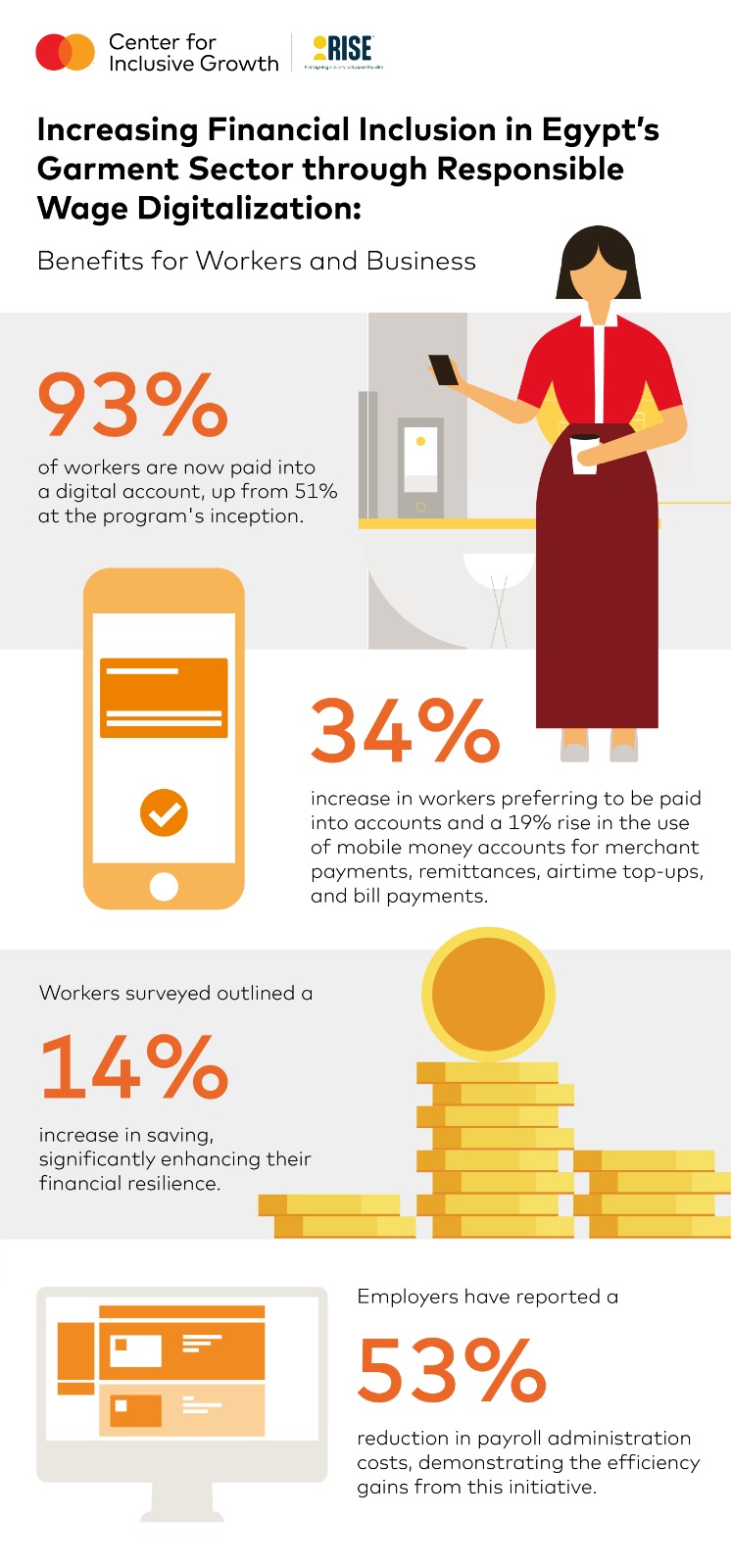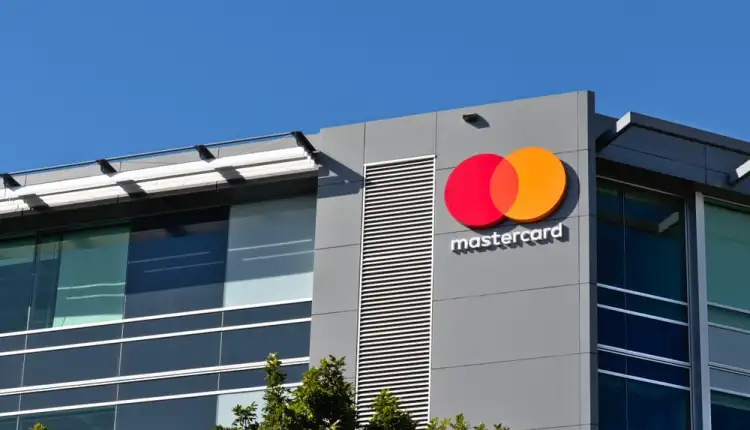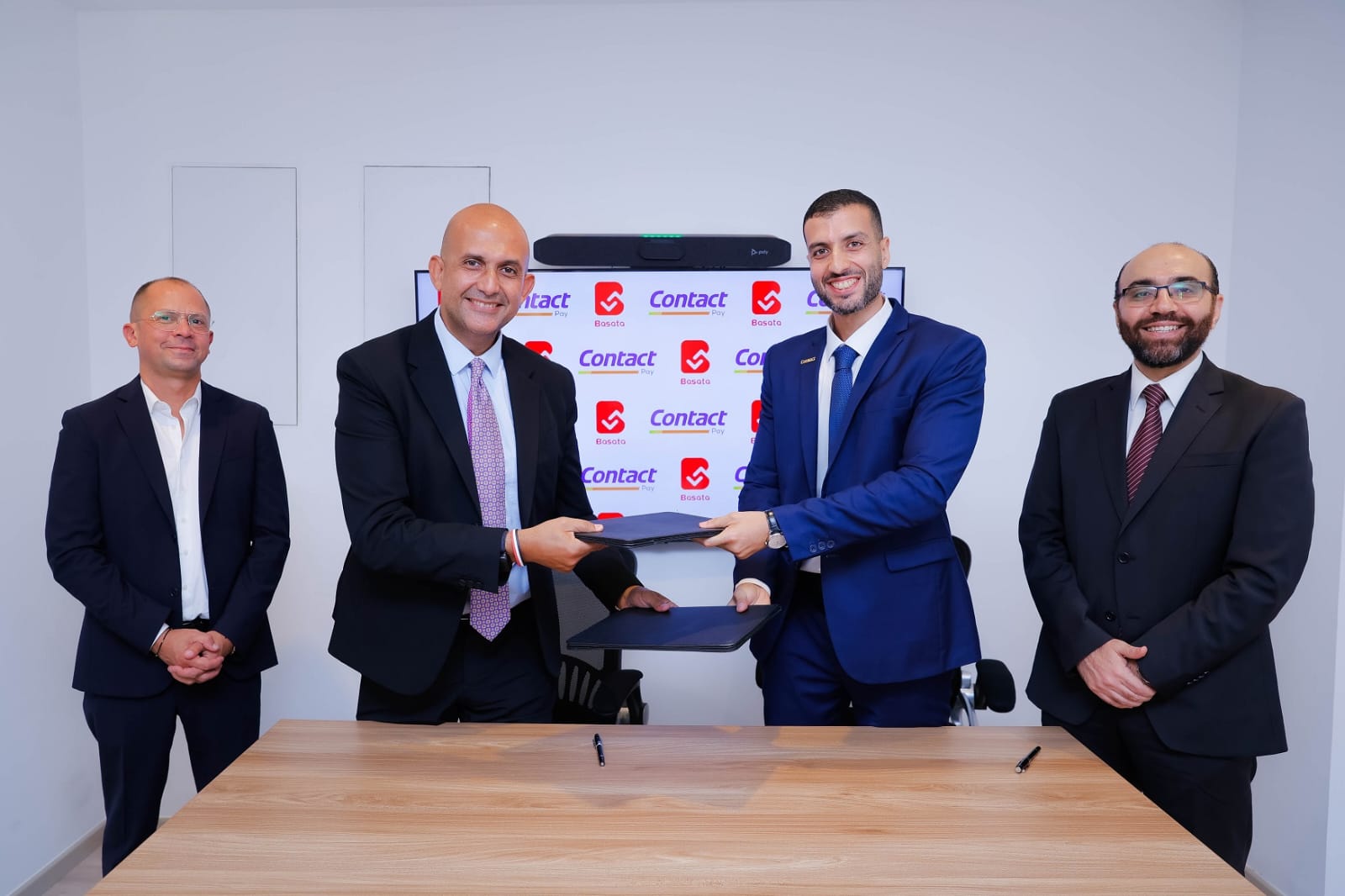Mastercard and RISE Mark Significant Progress in Wage Digitalization Project, Reaching 24,000 Garment Workers Across Egypt
Font size
The Mastercard Center for Inclusive Growth (Center) and RISE (Reimagining Industry to Support Equality) announce significant progress of their joint wage digitalization project in Egypt, which aims to enhance financial inclusion and resilience among garment workers. Since its launch in 2019, the initiative has successfully expanded to nine factories across five governorates, benefiting over 24,000 workers, including 43% women. The newly released report, “Increasing Financial Inclusion in Egypt’s Garment Sector through Responsible Wage Digitalization: Benefits for Workers and Business”, showcases the transformative impact of the initiative.
The garment industry in Egypt, employing millions of workers, 40% of whom are women, is a vital component of the country’s economy. However, the sector’s reliance on cash payments has created significant financial management challenges, especially for women. These challenges include difficulty in managing finances and a lack of ability to save, leading to low financial resilience. The partnership between the Center and RISE has shown that responsible wage digitalization, paired with financial literacy training, can effectively overcome these barriers, leading to substantial improvements in financial inclusion and overall financial health.
The recently issued report underscores the impact of these efforts, highlighting that 93% of workers are now paid into a digital account, up from 51% at the program’s inception. Additionally, the report notes a 34% point increase in workers preferring to be paid into accounts and a 19% point rise in the use of mobile money accounts for merchant payments, remittances, airtime top-ups, and bill payments. Workers surveyed outlined a 14% point increase in saving, significantly enhancing their financial resilience. Additionally, employers have reported a 53% reduction in payroll administration costs, demonstrating the efficiency gains from this initiative.

Factory managers who participated in the program received tailored guidance on digitizing their payroll systems, while workers were trained on how to access and utilize their new payroll accounts by RISE implementing partner, Center for Development Services (CDS). The training, delivered through a peer educator approach, included gender-sensitive sessions on essential money management skills, including financial planning, budgeting, saving, and decision-making. Building financial capability, particularly for women, is a crucial component of wage digitalization, empowering workers with the knowledge and confidence needed to achieve financial resilience. The success of this partnership presents a unique opportunity for the financial and garment industries to collaborate further and scale these benefits across Egypt’s 2.5 million garment workers, while also increasing efficiency and transparency in global supply chains.
Inji Borai, Vice President and Country Manager, Mastercard, Egypt, added, “Our partnership with RISE not only empowers workers, particularly women, but also aligns with Mastercard’s vision of advancing financial inclusion and building a digitally inclusive economy. The project has demonstrated the transformative effects of responsible wage digitalization, not only increasing financial inclusion and health but also boosting business efficiency. This initiative in Egypt is a key step in realizing our vision for cashless societies, and we look forward to expanding our impact across the garment industry.”
Christine Svarer, Executive Director at RISE, commented, “Paying workers digitally, when supported with gender-focused financial literacy training, increases financial inclusion and improves workers’ financial health. This has many positive knock-on effects for workers and their families, as clearly demonstrated by the results of this successful program in Egypt.”
This partnership highlights Mastercard’s role in driving meaningful change through financial inclusion, enhancing financial resilience, and improving transparency and efficiency in global supply chains.














